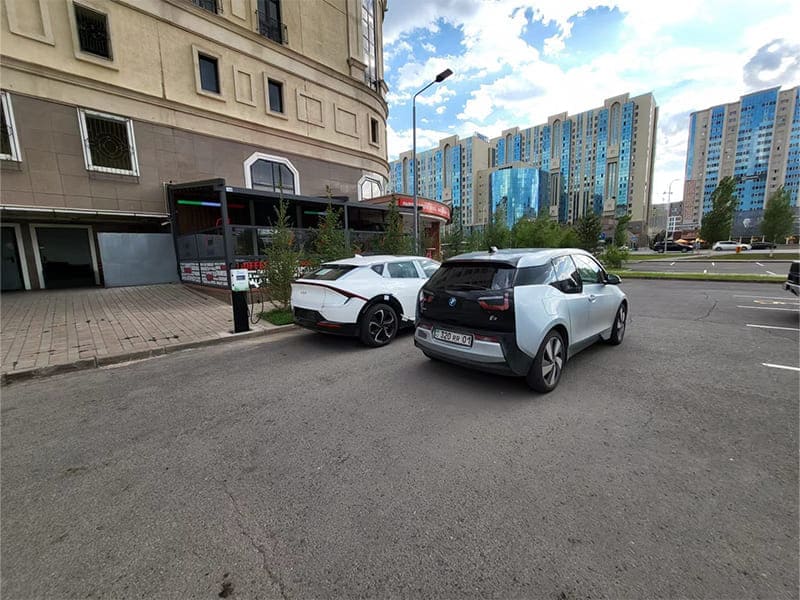Electric vehicle owners have a key choice. They must select a home charging solution. The decision often involves a 120V EV charging station or a 240V unit. Understanding their differences is crucial. This knowledge helps you make an informed decision. We will explore charging speed, installation, and cost. Ultimately, you will know which system fits your life.
A 120V EV charging station uses a standard household outlet. Conversely, a 240V unit requires a specialized circuit. This fundamental difference impacts their performance significantly.
Charging Speed: The Biggest Differentiator
Charging speed is the most notable contrast. A 120V EV charging station is very slow. It typically delivers about 4-5 miles of range per hour. This is often called “Level 1” charging. Therefore, it is best for low daily mileage.
Meanwhile, a 240V station is dramatically faster. It is commonly known as “Level 2” charging. It can deliver 12-80 miles of range per hour. Consequently, it can fully recharge most EVs overnight. This speed is a major convenience.
For example, consider a 60kWh battery. A 120V EV charger station might take over 48 hours. A 240V charger could complete the task in under 8 hours. This difference is transformative for daily use.
Electrical Requirements and Installation
The installation process varies greatly. A 120V EV charger station requires no special wiring. You simply plug it into a standard wall outlet. However, the circuit should be dedicated for safety.
In contrast, a 240V station needs professional installation. A qualified electrician must set up a new circuit. This often involves installing a NEMA 14-50 outlet. Therefore, the setup cost is higher.
Your home’s electrical panel must support the new circuit. Older homes might need a panel upgrade first. This additional cost is an important consideration. Always consult a professional electrician.
Ideal Use Cases and Applications
Each charger suits different lifestyles. A 120V EV charging station is perfect for a plug-in hybrid. These vehicles have smaller batteries. It also works for an EV with very short daily commutes.
Additionally, it is a great portable emergency solution. You can take it anywhere with a standard outlet. However, it is impractical as a primary charger for most.
A 240V station is the ideal home charging solution. It supports all-electric vehicles with large batteries. It easily replenishes the range from a full day’s driving. Consequently, it eliminates daily “range anxiety.”
Cost Comparison: Equipment and Installation
The cost structure is different for each. A 120V EV charger station is very inexpensive. The cord often comes free with the electric vehicle. There are usually no installation costs.
A 240V station has higher upfront costs. The hardware itself is more expensive. Furthermore, professional installation adds several hundred dollars. However, this investment pays off in daily convenience.
Think of it as a long-term investment. The improved quality of life is significant. You will rarely need to use public charging stations. This saves you both time and money. Who manufactures reliable 240V EV charging station products?
Aegen’s Comprehensive Home Charging Solutions
Manufacturers like Aegen cater to both needs. They produce a wide range of home charging products. Their portfolio includes powerful 240V wall-mounted units. These are available in 7kW, 11kW, and 22kW power levels.
Aegen also offers portable 120V/240V compatible chargers. These versatile units can operate at different voltages. Therefore, they provide flexibility for users.
The company provides strong technical support. This service is free for their partners and clients. They also offer customization options. This allows for tailored charging solutions.
Global Standards and Compatibility
Aegen understands global market variations. Their commercial DC EV fast chargers support many plug types. These include CCS1, CCS2, GB/T, and CHAdeMO. Their commercial AC units feature Type 1, Type 2, and GB/T connectors.
For home use, their 240V stations use common regional plugs. The specific plug type depends on the market. A 120V EV charging station typically uses a standard NEMA 5-15 plug. Always ensure compatibility with your vehicle.
Making the Right Choice for Your Home
Your choice depends on your driving habits. If you drive less than 40 miles daily, consider a 120V EV charging station. It is a low-cost and simple solution.
For most all-electric vehicle owners, a 240V charger is better. It offers speed, convenience, and peace of mind. It future-proofs your home for larger EV batteries.
Many owners start with the 120V cord. Then, they quickly upgrade to a 240V station. This is a very common and practical pathway.
Conclusion: Powering Your EV Journey
In summary, the difference is primarily about speed. A 120V EV charging station is slow but convenient. A 240V station is fast and requires installation.
Assess your daily driving distance and budget. Consider a 240V charger for a superior experience. It transforms EV ownership by making refueling effortless.
Companies like Aegen provide reliable hardware for both. Choose the solution that best powers your electric journey. Embrace the convenience of home charging today.

